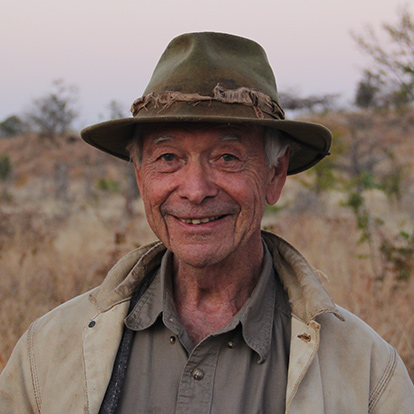Recent News
UNM Engineering Ph.D. candidate named ASCE ‘24 Outstanding Reviewer
August 11, 2025
UNM joins Brown University in national institute focused on intuitive, trustworthy AI assistants
August 6, 2025
UNM Engineering team wins ASEE best paper for work on first-year engineering course
July 17, 2025
New director will enhance interdisciplinary engineering learning opportunities
July 2, 2025
News Archives
Talk to focus on desertification problems, solutions in New Mexico
October 26, 2016 - By Kim Delker
Allan Savory, president of the Savory Institute and chairman of the Africa Center for Holistic Management, will give a talk at The University of New Mexico on Nov. 18.
Savory’s talk, “The Desertification of New Mexico,” will be held at 3:30 p.m. in the Centennial Engineering Building auditorium.
His talk will focus on the man-made desertification in New Mexico, which he describes as “as bad as anything in any African Third World country.” Savory will talk about how such severe biodiversity loss and desertification is playing a major role in increasing rural poverty, violence, and conflict, as well as climate change. He will also discuss solutions being employed in other continents and the challenges in bringing those solutions to the United States.
 Savory was born in Zimbabwe and received his bachelor’s degree in zoology and botany from the University of Natal in South Africa. He is a former game rancher in the British Colonial Service and in Zimbabwe. In the 1960s, he discovered a breakthrough in understanding what is causing desertification of the world’s grassland ecosystems and worked with partners to develop solutions to the crisis. In 2009, he founded the Savory Institute.
Savory was born in Zimbabwe and received his bachelor’s degree in zoology and botany from the University of Natal in South Africa. He is a former game rancher in the British Colonial Service and in Zimbabwe. In the 1960s, he discovered a breakthrough in understanding what is causing desertification of the world’s grassland ecosystems and worked with partners to develop solutions to the crisis. In 2009, he founded the Savory Institute.
The Savory Institute, based in Boulder, Colo., develops tools and curricula, informs policy, establishes market incentives, increases public awareness, and coordinates research with partners to solve challenges related to biodiversity.
The talk is being hosted by UNM’s Center for Water and the Environment, the Department of Mechanical Engineering, the UNM Water Resources Program, and the Utton Transboundary Resources Center of the UNM School of Law.
